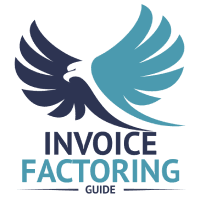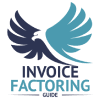
Have you ever been scrambling to make payroll at the end of the month? You’re not alone. This common scenario is one of the most stressful experiences for business leaders, and if payroll is missed, it is one of the worst possible outcomes for employees. However, there is a way to ensure your employees are paid on time, like clockwork, even if you don’t qualify for loans or don’t want to take on debt. On this page, we’ll walk you through how payroll factoring works and how to get started if you decide it’s the right choice for your payroll funding needs.
Making Payroll Can Be Challenging
Despite best intentions, many businesses struggle with making payroll at least occasionally. There are several reasons for this.
- Cash Flow Timing: Businesses might have accounts receivable (money owed to them) that haven’t been paid yet, causing a gap between incoming and outgoing funds. For example, a business might have completed a large project and invoiced the client, but the client has 30, 60, or even 90 days to pay.
- Fluctuating Payroll Costs: Nearly two-thirds of small businesses have fluctuating payroll costs, per Symmetrical.
- Seasonal Variations: Many businesses experience seasonal fluctuations in revenue. For instance, a retail store might see a surge in sales during the holiday season but struggle during off-peak months.
- Unexpected Expenses: Unplanned expenses, such as equipment repairs or sudden increases in material costs, can strain a company’s budget, making it hard to meet payroll.
- Growth and Expansion: Rapid growth can strain resources. Hiring new employees, expanding facilities, or increasing inventory can lead to temporary cash flow problems.
Timely Employee Payments Are Essential
Despite the challenges, paying employees on time is essential for a multitude of reasons.
- Employee Morale and Retention: Regular, timely pay is crucial for maintaining employee morale and job satisfaction. Late or inconsistent payments can lead to frustration, decreased productivity, and higher turnover rates. For example, 49 percent of employees will start looking for a new job after experiencing just two problems with their paycheck, a Kronos study finds.
- Legal and Regulatory Compliance: Failure to pay employees on time can result in legal penalties and fines. Labor laws in the U.S. require timely payment of wages, and violations can lead to costly legal battles and damage to a company’s reputation.
- Financial Stability for Employees: Many employees live paycheck to paycheck and rely on their wages to meet basic living expenses. Delayed payments can cause significant financial hardship, impacting their ability to pay rent, buy groceries, and cover other essential expenses.
- Business Reputation: Consistently paying employees on time builds trust and a positive reputation, both internally and externally. This reputation can enhance customer confidence and attract top talent.
Payroll Factoring: What it is and How it Works for Your Business
Payroll factoring, also known as “invoice factoring,” is a financial arrangement in which a business sells its outstanding invoices (accounts receivable) to a factoring company at a discount. In return, the business receives immediate cash, which can be used to cover payroll and other expenses. This is particularly useful for businesses that experience cash flow gaps due to delayed customer payments.
How Payroll Factoring Works
- Generating Invoices: A business provides goods or services to its customers and issues invoices with payment terms ranging from 30 to 90 days.
- Selling Invoices: Instead of waiting for the customers to pay, the business sells these invoices to a factoring company. The factoring company typically advances a significant percentage of the invoice value, usually around 70-90%.
- Immediate Cash: The business receives the cash advance from the factoring company, which can be used immediately to cover payroll and other expenses.
- Collection: The factoring company takes over the responsibility of collecting payment from the business’s customers. Once the customers pay the invoices, the factoring company releases the remaining balance to the business minus a factoring fee.
- Fee Structure: The factoring fee varies but is typically a small percentage of the invoice value. This fee covers the factoring company’s risk and the cost of handling collections.
Benefits of Payroll Factoring

- Instant Payout: Payments typically reach the business’s account within one or two days, though some payroll factoring companies can provide same-day payments.
- Improved Cash Flow: Payroll factoring provides immediate cash, allowing businesses to meet payroll and other financial obligations without waiting for customer payments.
- Flexibility: Unlike traditional loans, payroll factoring is based on the value of the invoices rather than the business’s creditworthiness, making it accessible to a wider range of businesses.
- Focus on Growth: With cash flow stabilized, businesses can focus on growth and expansion rather than worrying about immediate financial needs.
- No New Debt: Payroll factoring is not a loan, so it doesn’t add to the business’s debt burden. Instead, it leverages existing assets (invoices) to provide funding.
Example of Payroll Factoring in Action
Picture a small Colorado manufacturing company that has secured a large order from a retailer. The retailer has a 60-day payment term, but the manufacturing company needs to pay its employees and purchase raw materials. By using payroll factoring, the manufacturer can sell the invoice to a factoring company and receive most of the invoice value upfront. This immediate cash flow ensures that employees are paid on time and production continues without interruption.
Beyond Payroll: The Multifaceted Benefits of Invoice Factoring
As mentioned, the umbrella term for payroll factoring is invoice factoring, which offers a wide range of benefits beyond just ensuring timely payroll payments.
Enhanced Cash Flow Management
- Stabilized Cash Flow: Invoice factoring provides immediate access to cash, which helps businesses manage their cash flow more effectively. This stability allows for better financial planning and smoother operations.
- Liquidity for Growth: With improved cash flow, businesses can invest in growth opportunities such as expanding operations, hiring new staff, or launching new products without waiting for customer payments.
No Debt Accumulation
- Non-Debt Financing: Unlike loans, invoice factoring does not add to a business’s debt burden. This is particularly beneficial for businesses looking to maintain a healthy balance sheet and avoid the constraints of debt repayment schedules.
- Credit Preservation: Since factoring relies on the creditworthiness of the business’s customers rather than the business itself, it preserves the business’s credit rating and borrowing capacity for other financial needs.
Streamlined Operations
- Outsourced Collections: Factoring companies take over the responsibility of collecting payments from customers. This reduces the administrative burden on the business, allowing staff to focus on core activities. Full-service factoring companies will even prepare your invoices for you, too.
- Credit Risk Assessment: Factoring companies often provide credit checks and assessments of customers, helping businesses avoid high-risk clients and potentially reducing bad debt.
Increased Financial Flexibility
- Flexibility in Funding: Factoring is a flexible financing option that can grow with the business. As sales and invoices increase, the amount of available funding also increases, making it scalable and adaptable to changing needs.
- Immediate Response to Market Changes: Businesses can quickly respond to market opportunities or challenges with the readily available cash from factoring, enabling them to seize opportunities or mitigate risks more effectively.
Support for Small and Medium-Sized Businesses
- Accessible Financing: Factoring is often more accessible to small and midsized businesses than traditional bank loans, especially for businesses with limited credit history or those in industries with longer payment cycles.
- Empowering Growth: Small and midsized businesses can use factoring to fuel growth without the stringent requirements of traditional financing, allowing them to compete more effectively in their markets.
Choosing the Right Payroll Factoring Company
Choosing the right payroll factoring company is a critical decision. Below, we’ll walk you through some key factors to consider and steps to follow to ensure you select a factoring company that best suits your needs.

Understand Your Business Needs
- Assess Cash Flow Requirements: Determine the amount of cash flow you need to cover payroll and other expenses. This will help you find a factoring company that can meet your financial requirements.
- Evaluate Customer Base: Consider the creditworthiness of your customers. Factoring companies often assess the risk based on your customers’ ability to pay.
Research and Compare Factoring Companies
- Industry Experience: Look for factoring companies with experience in your industry. They will better understand your specific challenges and needs. For example, a company specializing in transportation might be more adept at handling freight bills.
- Reputation and Reviews: Check reviews, testimonials, and ratings from other businesses. A good reputation can be a strong indicator of reliability and quality of service.
Consider the Terms and Costs
- Advance Rate: The advance rate is the percentage of the invoice value that the factoring company will pay upfront. This typically ranges from 60 to 95 percent. Higher advance rates mean more immediate cash flow.
- Factoring Fees: Understand the fee structure. Fees can vary based on factors such as the volume of invoices, the creditworthiness of your customers, and the terms of the invoices. Common fee structures include flat fees, variable fees based on the duration the invoice remains unpaid, and additional service fees.
- Recourse vs. Non-Recourse Factoring: In recourse factoring, your business must buy back any unpaid invoices, which involves some risk. Non-recourse factoring means the factoring company assumes the risk of non-payment, but this option usually comes with higher fees.
Evaluate the Contract and Flexibility
- Contract Length: Some factoring companies require long-term contracts, while others offer more flexible, short-term agreements. Ensure the contract terms align with your business needs.
- Cancellation Policy: Understand the terms for canceling the agreement. Some companies may have penalties or notice periods for termination.
Customer Service and Support
- Communication: A factoring company with excellent customer service can make the process smoother. Ensure they have clear lines of communication and responsive support.
- Additional Services: Some factoring companies offer additional services such as credit checks on potential customers, collection services, and detailed reporting. These can be valuable add-ons that help manage your business more effectively.
Experience the Freedom of Payroll Factoring for Yourself
We can help you cut through the noise and connect you with the best payroll funding companies. To take the next step, request a complimentary factoring quote.
Payroll Factoring FAQs
What is payroll factoring?
Payroll factoring is a financial solution where a business sells its unpaid invoices to a factoring company in exchange for immediate cash. This helps businesses manage cash flow and ensures timely payment of employees.
How does payroll factoring work?
In payroll factoring, a business sells its accounts receivable to a factoring company at a discount. The factoring company advances a percentage of the invoice value, usually 60 to 95 percent, and collects payment from the customers. The remaining balance is paid to the business minus a factoring fee.
What are the benefits of payroll factoring for small businesses?
Payroll factoring provides immediate cash, improves cash flow management, avoids accumulating debt, and allows businesses to meet payroll and other expenses on time. It also offers flexibility and is accessible to businesses with limited credit history.
How can payroll factoring help with cash flow management?
Payroll factoring provides quick access to cash by converting unpaid invoices into immediate funds. This stabilizes cash flow, allowing businesses to cover operational expenses, invest in growth, and avoid financial strain caused by delayed customer payments.
What are the differences between payroll factoring and traditional loans?
Payroll factoring is not a loan and doesn’t add debt to the business’s balance sheet. It provides immediate cash based on outstanding invoices, whereas traditional loans require credit checks, collateral, and long approval processes and add to the business’s debt burden.
How do I choose the right payroll factoring company?
Consider factors such as industry experience, reputation, advance rate, factoring fees, contract terms, flexibility, customer service, and additional services. Research and compare multiple companies to find the best fit for your business needs.
What fees are associated with payroll factoring?
Fees typically include a factoring fee (a percentage of the invoice value), which varies based on the volume of invoices, customer creditworthiness, and invoice terms. Additional service fees may also apply for credit checks, collections, and other support services.
Is payroll factoring a good option for my business?
Payroll factoring is beneficial for businesses facing cash flow challenges due to delayed customer payments, especially those with limited access to traditional financing. It’s a good option if you need immediate cash to cover payroll and other expenses.
What industries commonly use payroll factoring?
Industries that commonly use payroll factoring include manufacturing, trucking, staffing agencies, healthcare, and any business with long payment cycles or seasonal fluctuations in revenue. It’s particularly useful for small and mid-sized businesses.
What is payroll funding?
Payroll funding is a financial solution that provides immediate cash to businesses to cover salary payments. It ensures that employees are paid on time even when there are delays in customer payments or other cash flow issues.
How do factoring payroll services work?
Factoring payroll services involves selling your accounts receivable to a factoring company. The company advances funds based on the value of your invoices, ensuring you have enough cash to meet payroll obligations.
What are the benefits of using payroll funding services for small businesses?
Payroll funding services help small businesses manage cash flow, avoid accumulating debt, and ensure timely payments to employees. This stability can improve employee morale and support business growth.
How can a payroll funding company help my business?
A payroll funding company provides immediate cash by purchasing your unpaid invoices. This allows you to finance payroll without waiting for customer payments, ensuring consistent salary payments and smooth operations.
What is the difference between payroll financing solutions and traditional loans?
Payroll funding solutions like factoring provide cash based on outstanding invoices without adding debt to your balance sheet. On the other hand, traditional loans involve borrowing money that must be repaid with interest, impacting your credit and financial flexibility.
How does funding for payroll improve business operations?
Funding for payroll ensures that employees are paid on time, reducing stress and increasing productivity. It helps businesses manage cash flow effectively, enabling them to focus on growth and other strategic initiatives.
Can payroll funding for small businesses help with seasonal cash flow issues?
Yes, payroll funding for small businesses can be especially useful during seasonal fluctuations. It provides the necessary cash flow to cover payroll during slower periods, ensuring smooth operations year-round.
What are payroll funds and how are they used?
Payroll funds refer to the money set aside or obtained to cover salary payments. These funds can be sourced through payroll funding solutions, ensuring businesses can meet payroll obligations without financial strain.
How does financing payroll through factoring differ from other funding options?
Financing payroll through factoring involves selling invoices for immediate cash without incurring debt. Other funding options, like loans or lines of credit, increase your liabilities and may have stricter qualification requirements.
What should I look for in a payroll finance provider?
When selecting a payroll finance provider, consider their experience, reputation, terms, fees, and customer service. A good provider will offer flexible terms, competitive rates, and excellent support to help you manage payroll effectively.
Can business payroll funding help startups?
Yes, business payroll funding can be particularly beneficial for startups without established credit or consistent cash flow. It provides the necessary capital to cover payroll, supporting early-stage growth and stability.
How do payroll funding services ensure timely salary payments?
Payroll funding services provide immediate cash based on your accounts receivable, ensuring you have the funds needed for timely salary payments. This prevents delays and maintains employee satisfaction.

About Invoice Factoring Guide
Related Articles
Get an instant funding estimate
Results are estimates based on the calculated rate and the total invoice amount provided.
Actual rates may vary.
Request a Factoring Rate Quote
PREFER TO TALK? Call us at 1-844-887-0300










